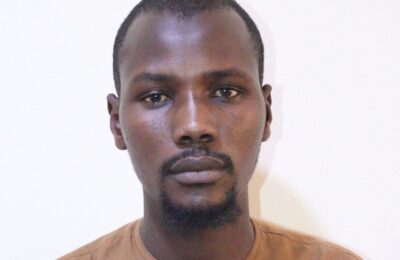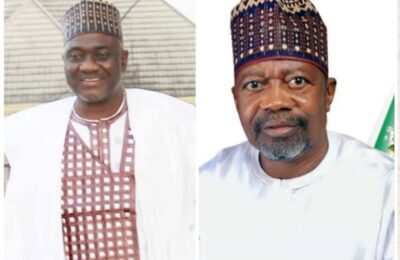Kogi State politics has continued to be an oubliette of ethnic coloration. Ethnic consideration is a major determinant in African politics. Instead of building with the bricks of issues, politics is more of a brotherly camaraderie among the black race. The 2015 governorship election in the state is not expected to depart from the past when ethnic politics was dominant.
Demography
According to the 2006 population census, Kogi State is inhabited by 3, 314, 043 people, making it the 24th most populous state in the Nigerian federation. Prior to the 2006 census, the population of Kogi East which is predominated by the Igala speaking people was higher than the addition of the two other Districts of Kogi West and Kogi Central. Kogi West is the Okun Yoruba people, the Oworo and the Nupe among others in Kogi and Lokoja Local Government Areas.
But the 2006 census has given the West and central a combined edge over the East in the population distribution. While Kogi East boasts of a population of 1, 479, 144 representing 45% of the total population; Kogi West has a population of 906, 244 which represents 27% of the population of the state while Kogi Central is populated by 928, 655 people, representing 28% of the total population.
Okene Local Government Area in Kogi Central is the most populous Local Government Area in the state with a population of 325, 623. The figures from the 2006 census has embolden the West and Central Senatorial Districts that they have the population to win the governorship that has eluded them since the creation of the state.
Smart as the major political parties are, they have moved swiftly to promise the ethnic minorities power rotation in 2020 to possibly douse the pressure for agitations in the forthcoming governorship election.
The Voting Pattern
Using the 2015 presidential election as a benchmark, the voting pattern in the state, despite the poor turnout of voters, still reflected the population distribution in the state. Out of the 439, 287 total number of votes cast during the presidential election. Kogi West accounted for 118, 894 votes which represented 27.1% of the total number of votes cast while Kogi Central turned in 120, 316 votes, representing 27.3% of the total number of votes cast. Kogi East had 200, 077 votes which which accounted for 44.6% of the total number of votes cast in the state.
As it is now, Kogi West is expected to be the determining factor in the governorship election. While the incumbent governor, Alh. Ibrahim Idris and the APC candidate, Prince Abubakar Audu are expected to share the spoils in Kogi East, analysts are of the opinion that until October 7, 2015 when substitution of candidates would wind up, no one can be sure of the next move of Kogi Central.
Heavy smoke of rumors is hovering around the Central District, especially, the unclear position of Alh. Yahaya Bello. After the demise of the late political leader of Ebiraland, late Dr. A.T. Ahmed; no one has been followed in the District like Alh. Yahaya Bello. With increasing pressure on the young entrepreneur to defect to another party, the people of Central may do what they did in 2003 when they fielded and supported one of their own in the governorship election that produced Alh. Ibrahim Idris.
Kogi West already boasts of two governorship running mates. While Arc. Abayomi Awoniyi is expected to run with the incumbent; Hon. Abiodun Faleke has emerged as the governorship running mate to Prince Abubakar Audu of the All Progressives Congress. Lokoja and Kogi Local Government Areas, which are the most densely populated in the District, will play a leading role in determining who wins the District during the governorship election.
While Ijumu Local Government Area may choose to reward the APC for giving them the Senate, Deputy Governorship and Ministerial seats, the Yagba people of Mopamuro, Yagba East and Yagba West may choose to go with any party that zones the Deputy Governorship seat to the area. As it stands today, only the PDP has done that. Kabba/Bunu has always been a stronghold of the PDP.
They have never lost there since 1999.
The incumbent is expected to record a slight edge against APC in Lokoja Local Government Area due to the influence of Sen. Tunde Ogbeha. However, pundits are giving Kogi Local Government Area to the APC due to the strong showing of the party in the Local Government Area during the last round of polls.
Will the Assembly Members Make Impact?
Never has the Kogi State House of Assembly been as balanced as it is now. PDP has 14 members while the opposition APC has 11 members. These numbers are expected to impact on the outcome of the next governorship election in the state. The House of Assembly members have been given the marching orders to deliver their constituencies. However, this might prove a herculean task as the challenges thrown up by a governorship election are quite different.
With the Speaker still hugely popular in the Central Senatorial District and may swing votes in favour of the governor who was instrumental to his emergence after the impeachment the former Speaker, Rt. Hon. Abdullahi Bello.
The Swing Local Government Areas
Okene, Adavi, Lokoja, Kogi, Dekina and Anpa are the Local Government Areas to watch out for in the election. With their heavy votes, they are capable of determining who wins or lose the governorship election in the state. The major political parties and their candidates will traverse the length and breadth of the state in search of votes in what is posed to be the most keenly contested election in the history of Kogi State.
The Stakes
The stakes in the Kogi governorship poll have been raised by a number of factors. While the PDP is the incumbent in the state, the APC controls the Federal Government. The two parties will no doubt strive to outwit each other. The emergence of a third force in Alh. Yahaya Bello will also determine the timing of power rotation in the state. The security agents and the Independent National Electoral Commission will also play critical roles in the success of the poll.




